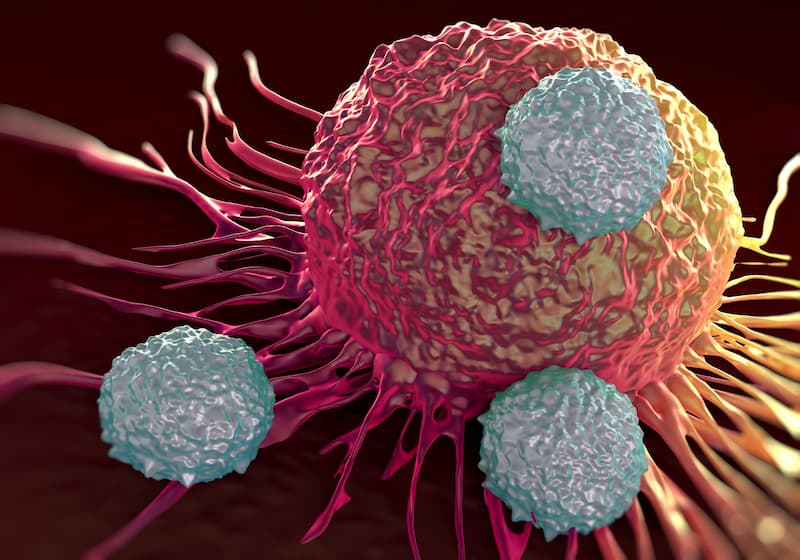FDA Clears Investigational New Drug Application for R-5780 in Solid Tumors
The RISE R-5780-01 trial will evaluate the safety and tolerability of R-5780 in patients with melanoma, basal cell carcinoma, or squamous cell carcinoma.
The RISE R-5780-01 trial will evaluate the safety and tolerability of R-5780 in patients with melanoma, basal cell carcinoma, or squamous cell carcinoma.

The FDA has accepted an investigational new drug application for R-5780, a precision-directed synthetic biology medicine that engages immune pathways to support robust anti-tumor T cell responses, in the treatment of patients with solid tumors, according to a press release from the developer, Rise Therapeutics.1
Next steps will see to the beginning of the multi-dose phase 1 RISE R-5780-01 trial (NCT06398418) evaluating the safety and tolerability of R-5780 in patients currently receiving PD-1 pathway checkpoint inhibitors for solid tumors.
R-5780 is an orally delivered immune oncology drug candidate that has demonstrated a pronounced ability to engage immune pathways that enhance the efficacy of immune checkpoint therapy.
Christian Furlan Freguia, senior vice president of research at Rise Therapeutics, said in the press release, “The FDA's clearance for R-5780 is a testament to the innovation and dedication of our team at Rise Therapeutics driving novel immunotherapies forward into human proof-of-concept. R-5780 represents a pioneering approach that leverages the power of gut-regulated immune pathways to enhance the effectiveness of immune checkpoint inhibitors...We believe R-5780 has the potential to expand responses in patients [who] become refractory to immune checkpoint inhibitors and increase responsiveness in tumors initially unresponsive to these medications.”1
The trial’s primary end point will be the incidence and severity of adverse events (AEs) and their relationship to R-5780, and it will assess the number of patients with treatment-related AEs from baseline through week 4.2 The secondary end point will be quality of life, assessed at each study visit using the Quality of Life Scale of 30 questions, summed so that a higher score indicates a higher quality of life, from baseline through the end of study day 112.
Patients will receive oral doses of R-3750 and then provide overall feeling and physician-scored measures of their tumors. Additionally, blood and fecal evaluations of inflammation and assessment of probiotic on fecal levels will be measured.
The study will enroll up to 33 patients between 18 and 80 years old, and is planned to take place from March 1, 2025, to September 30, 2026.
Patients are required to have unresectable stage III or IV melanoma, basal cell carcinoma, or squamous cell carcinoma per 8th edition American Joint Committee on Cancer 2017 guidelines regardless of BRAF mutation status and other solid tumors. Additionally, they need to be refractory to anti–PD-1/L1 therapy per RECIST v1.1 guidelines, defined as an individual with disease progression after at least 2 complete cycles of immune checkpoint inhibitor therapy or disease progression 6 months from beginning immune checkpoint inhibitor therapy while on active therapy. Other eligibility criteria include having a life expectancy of greater than 3 months, an ECOG performance status from 0 to 2, and evaluable disease by CT or MRI per RECIST v1.1 guidelines or clinically apparent disease.
Exclusion criteria include serious medical conditions, laboratory abnormalities, psychiatric conditions, or any other significant or unstable medical illness that would preclude protocol adherence; treatment with systemic broad-spectrum antibiotics; active viral infections; coexisting severe chronic diseases other than cancer; secondary gastrointestinal mobility disorders; prior CAR T or allogenic cellular therapy; more than 4 prior systemic therapies; and untreated brain metastasis.
According to the developers, R-5780 builds upon a growing understanding of how the microbiome can boost the efficacy of immune oncology therapies.3 Instead of producing an agent around natural commensals, developers aimed to design R-5780 as a targeted drug that engages selective immune pathways to facilitate anti-tumor responses.
References
- Rise Therapeutics receives FDA IND clearance to initiate clinical testing of R-5780 in cancer. News release. Rise Therapeutics. January 13, 2025. Accessed January 15, 2025. https://tinyurl.com/2a3zbuj8
- R-5780-01 in combination with PD-1 checkpoint inhibitors (checkpoint protein on immune cells called T cells) in patients with solid tumors. ClinicalTrials.gov. Updated November 13, 2024. Accessed January 15, 2025. https://tinyurl.com/3va4d35h
- Pipeline. Rise Therapeutics. Accessed January 15, 2025. https://tinyurl.com/2e8zm7bt
How Supportive Care Methods Can Improve Oncology Outcomes
Experts discussed supportive care and why it should be integrated into standard oncology care.